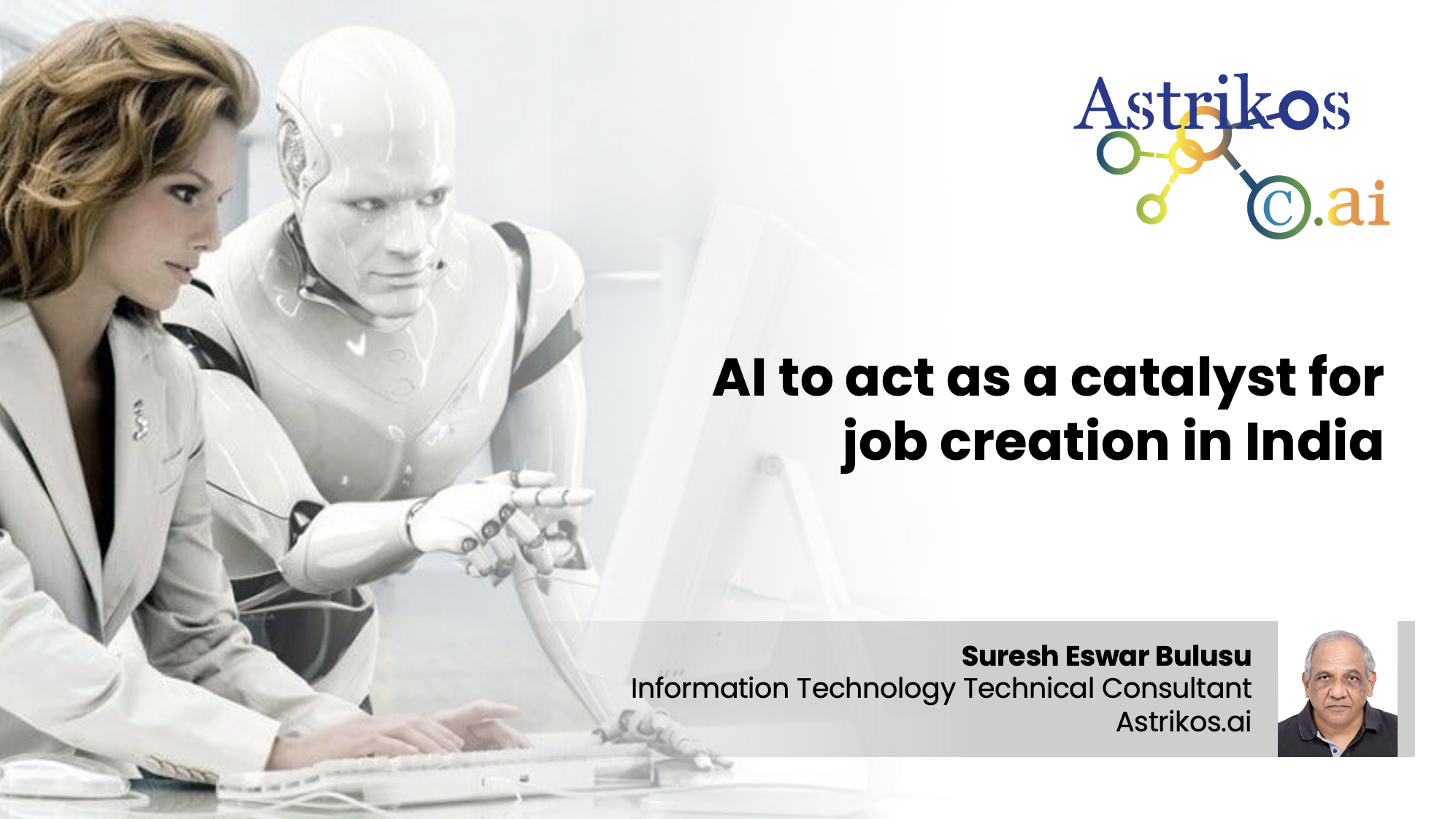AI to act as a catalyst for job creation in India By- Suresh Eswar Bulusu, Director, Pre -Sales, Astrikos.ai

A recent study by
ServiceNow, a leading AI platform for business transformation, and Pearson, the
world’s foremost learning company, predicts that AI could generate 2.73 million
new tech jobs in India by 2028. This presents unparalleled innovation and job
creation opportunities, marking a pivotal shift in the conversation around AI
and employment.
While concerns about automation replacing human labor, particularly in routine, repetitive tasks, continue to remain, the study highlights AI’s potential to create high-value, strategic roles that emphasize decision-making and problem-solving. Beyond promoting economic growth, this trend stresses the importance of workforce reskilling and upskilling to align with the demands of an AI-driven future.
Critical
skillsets and upskilling programs
To seize emerging
opportunities, tech professionals must build expertise in software application
development, web development, data analytics, software testing, data
engineering, AI and machine learning, cloud computing, and the integration and
implementation of generative AI, among other in-demand skills.
For professionals aiming to immediately contribute and be productive, they should focus on real-world applications of AI and ML technologies. These skills ensure that individuals can build and deploy models and integrate AI into existing business processes effectively. Proficiency is essential in core programming languages, machine learning algorithms and model development, deep learning frameworks, data visualization and communication, time series forecasting, deployment and automation of AI/ML models, and more.
AI
adoption across different sectors
Retail:
Data scientists use
AI/ML technologies to analyze customer feedback, sentiment, and purchasing behavior
for targeted marketing campaigns, forecast demand, optimize stock levels,
improve distribution, and identify and prevent fraudulent transactions,
both online and in-store.
Manufacturing:
AI/ ML technologies are
leveraged to analyze large datasets to identify trends, anomalies, and
opportunities for improving manufacturing efficiency. In smart cities, Traffic Solutions (ATCS and ITMS), Air Quality Index
(AQI) monitoring, Street Lighting, and Building Management Systems operate
efficiently to ensure seamless urban infrastructure management. Data scientists use predictive analytics, and actionable
recommendations on the performance of the equipment, predict and simulate
failure models and proactive maintenance while reducing downtime and impact, and
ensuring sustainability. AI and ML
models can be used to enhance inventory management, demand forecasting, and
logistics, in addition to optimizing production processes.
Education:
Data scientists utilize
AI/ML technologies to analyze student performance data and provide insights
into learning patterns, enabling personalized learning experiences. Designing
and developing intelligent educational platforms that adapt to personalized and
adaptive learning needs is possible. AI-powered chatbots provide students with
real-time assistance in learning, administration, and guidance.
Healthcare:
Data scientists work on building machine learning models for medical diagnostics, predictive analytics, and treatment recommendations. They analyze patient data, clinical trials, and healthcare trends to uncover insights that improve treatment outcomes or operational efficiency. Analyzing clinical data for patient care optimization, predicting patient conditions, and managing chronic diseases is made possible. AI/ML technologies can assist in research-building models to analyze biological data and accelerate drug discovery and development.
Challenges
to overcome in AI training
Some of the common AI training challenges are data privacy and data quality issues, the inclusion of biases in AI models knowingly or otherwise, and talent shortage. These need to be addressed to ensure the effective adoption and growth of AI/ML technologies across industry verticals. Additionally, the non-availability of skilled trainers and mentors, lack of accessibility to resources, low lab capacities, and internship opportunity shortage for students have to be addressed as well.
The
Road Ahead
Going forward, AI/ML
training in India is poised for significant growth, driven by the country’s
expanding technology ecosystem, a rapidly evolving job market, and strong
government support for innovation in AI. Government initiatives like the National
AI Mission and AI-specific training centers will be scaled up to offer
standardized, industry-driven AI/ML curricula.
Skill development
programs by organizations such as NASSCOM, Skill India, and AICTE
aim to equip workers in non-technical roles with AI knowledge through
upskilling and reskilling programs. Incorporation of project-based learning,
where students and professionals work on actual datasets, creating solutions
for businesses, communities, or government Hackathons will be key
components of AI/ML training, where participants can solve problems related to
healthcare, agriculture, finance, and more, promoting hands-on experience.



